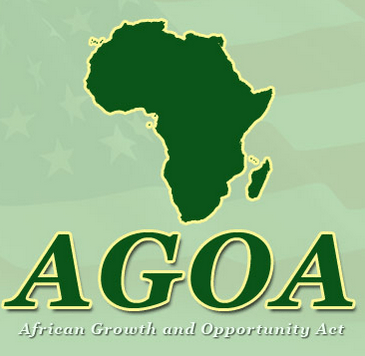GSA seeks improved standards to increase access to AGOA
 The Ghana Standards Authority is spearheading efforts to seek effective ways the Textile industry in Ghana can improve market access under the African Growth and Opportunity Act (AGOA) through adherence to standards.
The Ghana Standards Authority is spearheading efforts to seek effective ways the Textile industry in Ghana can improve market access under the African Growth and Opportunity Act (AGOA) through adherence to standards.
Since the introduction of AGOA in 2000, Ghana has been unable to make effective utilisation of the benefits from the preferential scheme that has the potential to help Ghanaian businesses expand and create jobs, while also promoting the growth of entrepreneurship with a special emphasis on young Ghanaians.
The United States is the world’s largest consumer and importer of wearing apparel, bringing in $90 billion worth of apparel products in 2015. This represents an increase of 33 per cent in just six years, compared to the depressed import levels caused by the 2009 global recession.
Already, the Ministry of Trade and Industry has taken the opportunity to develop a new strategic approach for utilising Ghana’s preferential market access to the US markets through the AGOA, which was renewed for a ten year period in 2015 through 2025 by an act of the United States Congress.
Speaking at a stakeholders meeting on the textile and garment sector in Ghana, Professor Alex Dodoo, Director General of GSA, said the textile and garment sector was a big growth area for Ghana and it could help create jobs and wealth for practitioners in the sector.
“We‘ve had AGOA but a lot of our activities have been more technical and this does not transform into business to lift our people out of poverty,” he said.
Prof Dodoo said a key factor inhibiting access to AGOA was lack of adherence to standards, adding that GSA as the national metrology institute has the ability to support industry to be able to develop world class standards to ensure that practitioners can sell their textiles anywhere else.
“The GSA knows what it takes to test fabrics to ensure they do not contain banned substances, including dyes and to ensure that the products are acceptable in the US and the European market,” he said.
“The GSA has men and women in place and the skills to come out with sizes for Ghanaian clothes, necessary dress sizes reflect,” he added.
Prof Dodoo said the GSA would support dressmakers and tailors to understand the reasons why measurement was critical in their job to enable them to capture the global market.
He said it was important for Ghana to have its own standards but matched them to global standards and it is in this direction that the GSA would establish an equipment hub because the equipment needed for accurate measurement are expensive for manufacturers.
Mr Kofi Nagetey, Deputy Director General Operations GSA, said to be an effective player in the International market, textiles and garment manufacturers need to get the necessary equipment to give them accurate and precise measurement.
He said the equipment must also be calibrated constantly to ensure the attainment of accurate measurement.
Mr Charles Amoako, Deputy Director General Conformity Assessment, urged the manufacturers to ensure that they complied with domestic and international market standards before exporting their goods.
This, he said, would enable them to compete effectively in the market, adding that compliance to standards also assure buyers of the quality of the product.
Other issues touched on were the need to address the size factor for the clothing to meet the demands of the international buyers.
Source: GNA
